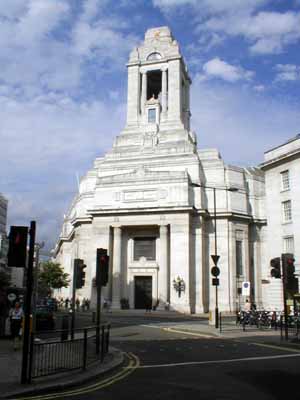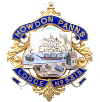



Frequently Asked Questions
Freemasonry is the largest secular, fraternal and charitable organisation in the United Kingdom. It teaches self-knowledge through participation in a progression of ceremonies. Members are expected to be of high moral standing and are encouraged to speak openly about Freemasonry.
What happens at a lodge meeting?The meetings, which like those of many other groups are open only to members, are normally in two parts.
First:-
There are normal administrative procedures such as reading the Minutes of the previous meeting, proposing and balloting for new members, discussing and voting on the annual accounts, considering correspondence, Masonic news and news about charitable work.
Second :-
There are the ceremonies for admitting new members and the annual installation of the Master of the Lodge and his officers
New members make solemn promises concerning their behaviour both in the Lodge and in society. Members also promise to keep confidential the way they recognise each other when visiting another Lodge. Freemasons also promise to support others in time of need but only so far as it does not conflict with their family and public obligations.
Are Freemasons expected to give preference to fellow members?Certainly not. This would be unacceptable and may lead to action being taken against those involved. On joining, each new member states that he expects no material gain from membership.
Who do the Masonic charities donate to?Whilst there are Masonic charities that cater specifically, but not exclusively, for Masons or their dependants, others make significant grants to non-Masonic organisations.
What is Freemasonry's relationship with religion?All Freemasons are expected to have a religious belief, but Freemasonry does not seek to replace a Mason's religion or provide a substitute for it. It deals in a man's relationship with his fellow man not in a man's relationship with his God.
Why do some churches not like Freemasonry?There are elements within churches who misunderstand Freemasonry and its objectives. They confuse secular rituals with religious liturgy. There are many Masons in churches where their leaders have been openly critical of the organisation. Masonry has always actively encouraged its members to be active in their own religion.
Does Freemasonry accept Roman Catholics?Yes. Four Grand Masters of English Freemasonry have been Roman Catholics. Today there are many Roman Catholic Freemasons.
What is Freemasonry's relationship with politics?Freemasonry, as a body, will never express a view on politics or state policy. The discussion of politics at Masonic meetings has always been prohibited.
Is Freemasonry an international order?Freemasonry exists throughout the world. However, each Grand Lodge is sovereign and independent. There is no international governing body for Freemasonry.
Are there women Freemasons?Yes. Whilst UGLE, following the example of medieval stonemasons, is, and has always been, restricted to men, women Freemasons have two separate Grand Lodges, which are restricted to women.
Why do you wear regalia?Wearing regalia is historic and symbolic. Like a uniform, the regalia indicates the rank of the wearer in the organisation.
How many Freemasons are there?Under the United Grand Lodge of England, there are over a quarter of a million Freemasons.
There are Grand Lodges in Ireland, which covers both Northern Ireland and Eire, and Scotland which have a combined total of approximately 150,000 members.
Worldwide, there are approximately six million Freemasons.
Basic or "Craft" Freemasonry consists of three degrees:
Entered Apprentice
Fellow Craft
Master Mason
There are many other Masonic degrees and Orders which are called 'additional' because they add to the basis of the Craft. They are not basic to Freemasonry but add to it by further expounding and illustrating the principles stated in the Craft.
Some of these additional degrees are numerically superior to the third degree but this ranking only applies within that Order and does not imply that they are in anyway superior to or higher than the Craft. The ranks that these additional degrees carry have no standing with the Craft.
How much does it cost to be a Freemason?It varies from Lodge to Lodge. Anyone wishing to join will find a Lodge to suit his pocket. There is an initiation fee on entry and in due course regalia will have to be bought. The meeting is normally followed by a dinner, the cost depending on the venue. There is, in addition, an annual subscription.
Members are invited to give to charity but this should always be within their means and it is entirely up to the individual how much they wish to contribute.
How and where did Freemasonry start?It is not known. The earliest recorded 'making' of a Freemason in England is that of Sir Robert Moray at Newcastle upon Tyne in 1641. Organised Freemasonry began with the founding of the Grand Lodge of England on 24 June 1717, the first Grand Lodge in the world. Ireland followed in 1725 and Scotland in 1736. All the regular Grand Lodges in the world trace themselves back to one or more of the "Home" Grand Lodges of the British Isles.
There are two main theories of origin. According to one, the operative stonemasons who built the great cathedrals and castles had lodges in which they discussed trade affairs. They had simple initiation ceremonies and, as there were no City and Guilds certificates, dues cards or trade union membership cards, they adopted secret signs and words to demonstrate that they were trained masons when they moved from site to site.
In the 1600s, these operative lodges began to accept non-operatives as "gentlemen masons". Gradually these non -operatives took over the lodges and turned them from operative to 'free and accepted' or 'speculative' lodges.
The other theory is that in the late 1500s and early 1600s, there was a group which was interested in the promotion of religious and political tolerance in an age of great intolerance when differences of opinion on matters of religion and politics were to lead to bloody civil war.
In forming Freemasonry, they were trying to make better men and build a better world. As the means of teaching in those days was by allegory and symbolism, they took the idea of building as the central allegory on which to form their system.
The main source of allegory was the Bible, the contents of which were known to everyone even if they could not read, and the only building described in detail in the Bible was King Solomon's Temple, which became the basis of the ritual.
The old trade guilds provided them with their basic administration of a Master, Wardens, Treasurer and Secretary, and the operative mason's tools provided them with a wealth of symbols with which to illustrate the moral teachings of Freemasonry.
Membership is open to men of all faiths who are law-abiding, of good character and who acknowledge a belief in a "Supreme Being". Freemasonry is multi-racial and multi-cultural. It has attracted men of goodwill from all sectors of the community into membership. There are similar but seperate Masonic organisations for women.
Why do people join and remain members?Men become Freemasons for many reasons, some out of curiosity to know what it is all about, some because their father or some other relation was a mason, some when a friend joins.
There are those who become active members and some who "fall by the wayside" but those who stay in Freemasonry do so principally because they enjoy it. They may just enjoy the fellowship that Freemasonry offers or they may become active in their lodge. There is, however, more to it than just enjoyment.
Taking part in the dramatic presentation of moral lessons of the ritual and in the running of the lodge provides a member with an opportunity to learn more about himself and will encourage him to live in a manner such that he will try to be a better man, a more moral man and hence a better member of society.
Each Freemason learns to show humility through his initiation. He then progresses through the other degrees and gains an insight into moral and philosophical concepts, challenges and responsibilities which can be both stimulating and rewarding.
The working of the lodge and the ceremonies are are usually followed by a social gathering and meal.
New members make a solemn promise regarding their conduct both in the lodge and in society. These promises are similar to those taken upon entering the armed services or many other organisations.
Each member also promises to keep confidential the means by which he shows he is a Freemason when visiting a lodge where he is not known.
What about the "Blood Oaths"?These much publicised "traditional penalties" were removed from the promises many years ago.
Back when Grand Lodge was founded it was normal practice for a legal oath to contain a physical penalty, this survives in the "Cross my heart and hope to die" of our childhood and Freemasonry followed the custom of that time.
These penalties were always symbolic and not meant to be taken literally.
In their promises Freemasons promise to help others in times of need, but only if that does not conflict with their duties to their God, to the Law, to their family or with their responsibilities as a Citizen.
We are not.
Our lodge meetings, like those of many other groups, are private and open to members only. The rules and aims of Freemasonry are freely available to the public.
Our meeting places are known and in many areas are used by the local community for activities other than Freemasonry.
Isn't ritual out of place in a modern society?No. The ritual is a shared experience which binds the members together. Its use of drama, allegory and symbolism impresses the principles and teachings more firmly in the mind of each candidate than if they were simply passed on to him in matter-of-fact modern language.
Why do grown men run around with their trousers rolled up?It is true that candidates have to roll up their trouser legs during the three ceremonies when they are being admitted to membership.
Taken out of context, this can seem amusing, but like many other aspects of Freemasonry, it has a symbolic meaning.
Isn't it true that Freemasons only look after each other?No. From its earliest days, Freemasonry has been involved in charitable activities. Since its inception, Freemasonry has provided support not only for widows and orphans of Freemasons but also for many others within the community.
Whilst some Masonic charities cater specifically but not exclusively for Masons or their dependents, others make significant grants to non-Masonic organisations.
On a local level, lodges give substantial support to local causes.
Why do you call it the VSL and not the Bible?To the majority of Freemasons the Volume of the Sacred Law is the Bible. There are many in Freemasonry, however, who are not of the Christian Faith and to them the Bible is not their sacred book. They make their promises on that book which is regarded as sacred by their religion.
The Bible will always be present in an English lodge but as Freemasonry welcomes men of many different faiths, it is called the Volume of the Sacred Law. Thus, when the Volume of the Sacred Law is referred to in ceremonies, to a non-Christian it will be the holy book of his own religion and to a Christian it will be the Bible.

© 2020 Howdon Panns Lodge.